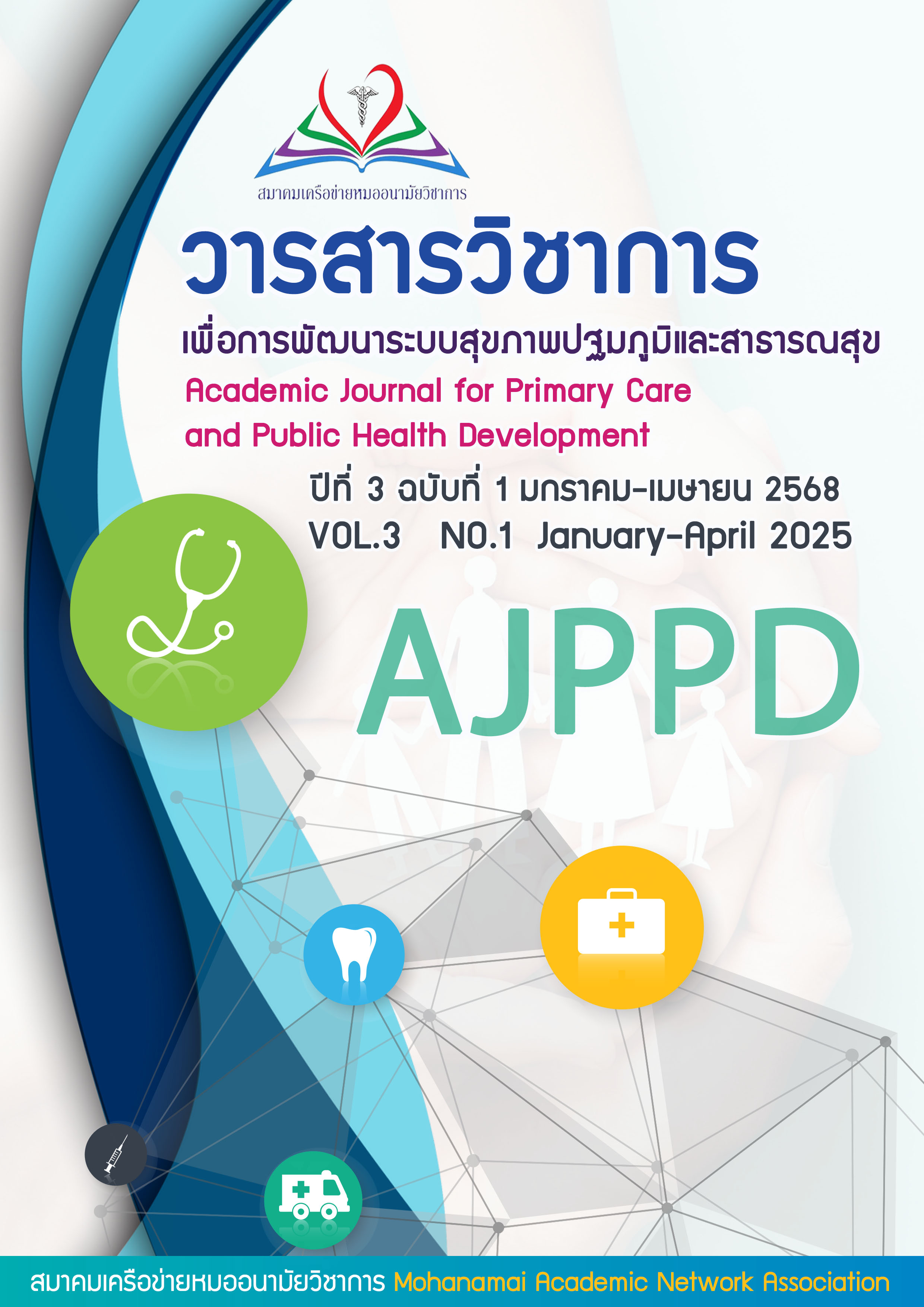Effects of Cognitive Behavioral Therapy on Anxiety and Depression of high blood pressure patients Charim Health Promoting Hospital, Tha Pla District Uttaradit Province.
Abstract
The objectives of this research were: 1) to study the effects of cognitive behavioral therapy on anxiety and depression in elderly patients with hypertension and diabetes, 2) to compare the mean anxiety and depression scores of the elderly before and after the experiment in the experimental group, and 3) to compare the mean anxiety and depression scores between the experimental and control groups both before and after the experiment. This research employed a quasi-experimental design with two groups measured twice. The sample consisted of 60 elderly participants aged 60-70 years, divided into experimental and control groups of 30 participants each. The experimental group received a cognitive behavioral therapy program adapted from Hudson et al.'s concept, comprising 8 sessions, twice a week, 60-90 minutes per session, over a 4-week period. The research instruments included the STAI Form Y-1 for anxiety assessment and the Health-Related Self-Report Scale (HRSR Scale) for depression screening. Data were analyzed using descriptive statistics, independent t-test, dependent t-test, and MANOVA.
The results showed that: 1) after participating in the program, the experimental group's mean anxiety score decreased significantly from 46.73 to 37.26 (a 20.3% reduction) and the mean depression score decreased from 27.46 to 23.80 (a 13.3% reduction), both statistically significant (p < .001); 2) the experimental group had significantly lower mean anxiety and depression scores than the control group after the experiment (p < .001), with large effect sizes (Partial η² > .14); 3) the control group showed no statistically significant differences in mean anxiety and depression scores before and after the experiment.
References
กรมสุขภาพจิต. (2562). แนวทางการดูแลสุขภาพจิตผู้สูงอายุในระบบบริการปฐมภูมิ. กระทรวงสาธารณสุข.
ดวงใจ กสานติกุล, และคณะ. (2540). แบบสอบถามปัญหาสุขภาพเพื่อตรวจวัดหาโรคซึมเศร้าในประชากรไทย. สถาบันจิตเวชศาสตร์สมเด็จเจ้าพระยา.
Beck, J. S. (2011). Cognitive behavior therapy: Basics and beyond (2nd ed.). Guilford Press.
Hudson, J. L., Newall, C., Rapee, R. M., Lyneham, H. J., Schniering, C. A., Wuthrich, V. M., ... & Gar, N. S. (2016). Clinical Child and Family Psychology Review, 19(3), 227–237. https://doi.org/10.1007/s10567-016-0210-5
Sangiumnaimuang, P., Aemraj, R., & Selakat, S. (2010). Prevalence of depression in Thai elderly with chronic diseases. Journal of the Medical Association of Thailand, 93(Suppl 7), S152-S158.
Spielberger, C. D. (1983). Manual for the State-Trait Anxiety Inventory (STAI). Consulting Psychologists Press.

Downloads
Published
How to Cite
Issue
Section
License

This work is licensed under a Creative Commons Attribution-NonCommercial-NoDerivatives 4.0 International License.





